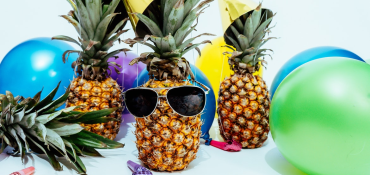Our article last week began to explain part of the huge phenomenon of ‘likes’ and why we really like to get a ‘like’! As we explained earlier, ‘liking’ pictures on Facebook and Instagram is a common habit as there are 3,125,000 ‘likes’ being thrown around on Facebook every minute. As well as there being complex brain reward circuitry involved, there are also huge social aspects involved in understanding why we enjoy receiving likes, such as to feel part of a group. We’re going to dive straight into more of the psychology behind why we like ‘likes’.
‘Liking’ Is A Form of Virtual Empathy
In the same way we would tell a friend we like the dress they are wearing that day, or we nod in agreement to the argument they are making, we ‘like’ on social media platforms to show solidarity with a friend and their way of thinking. In one sense, this is virtual empathy and it is easy to forget that social media is not real life! One study by Rosen et al., (in press) examined the effects of the ‘like’ button on Facebook on virtual empathy; they surveyed 1390 adults about their media usage, their level of ‘real world’ empathy, their empathy expressed in virtual worlds, and their perceived social support. Results showed that real-world empathy is six times more important than virtual empathy in making someone feel supported.
Seeking Approval
An interview with Katie*, 23, told us that she has gone as far as deleting her Instagram posts if they don’t receive enough likes and says “I feel so much happier after I hit the 11 likes”. The reason behind this happiness is because when you post an image on social media it is there for the world to see … and approve. Your post is vulnerable to the thoughts of others so if you don’t receive as many ‘likes’ – a form of approval – as you first thought, this may damage your pride or ego. It isn’t a pleasant feeling when we don’t receive approval from peers and other social media users as you begin to question your content. We naturally seek the approval of those around us; this goes back to a previous point made about humans being social animals and needing to be a part of a group.
The major factors driving the popularity of social media usage are fundamentally cyberpsychological. We like ‘likes’ for a host of different reasons, the main one being that we enjoy the feeling of reward when we feel approved and part of a group. We hope you enjoyed this slightly different article series on the psychology behind a major part of our social media business plans.
































